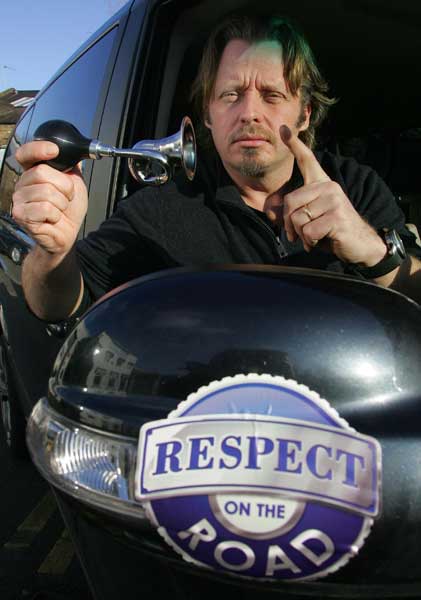Passed/Failed: An education in the life of Charley Boorman, actor, documentary-maker and motorcyclist
'I had to explain my dyslexia to teachers'

Charley Boorman, 43, appeared at the age of five in Deliverance, a film directed by his father, John Boorman. Since his 19,000-mile globe-spanning motorbike trek with Ewan McGregor, Charley has been riding solo for his TV series Right to the Edge: Sydney to Tokyo By Any Means, which is also the title of his new book and DVD. He is the president of Dyslexia Action UK. He begins a UK tour on Monday at The Stables, Milton Keynes (www.charleyboormanlive.com).
Whenever they needed kids on a film, they would chuck me and my sisters in as cheap labour! When I did Deliverance, my father gave me a tricycle: maybe that was the start of the motorcycle thing. I fell off my first motorbike when I was seven – and never looked back. I was trying to start a motorbike with my friend Jason. He made me push him to get it going and then he gave me a go. I got on it and drove past my father, who grabbed me by the hair and saved me from riding into a barbed-wire fence.
Because my father was a film director, we moved around and I feel I was never properly at school until I was 13. When I was making films during term time, I had tutors who were very good. I remember being found to be dyslexic in America, where they were well ahead of us here. When I went back to Ireland, where we lived, I had to explain to the teachers what dyslexia was; some teachers were sympathetic.
It's not like a kid with a broken leg; with dyslexia there is no physical problem. It can be frustrating to a teacher who spends ages teaching a word to a kid which next day they can't spell. Even today children are accused of not concentrating, but it's getting better and dyslexia is much more of an identified problem.
I suppose I was quite a social kid and I played a bit of sport. I went first to St Gerard's near Bray in Ireland. It was a nice school and good fun but it was not equipped to deal with dyslexic pupils. Then I went to St Kilian's in Dublin, which was also a nice school. It was started by a German guy, though they didn't follow the German curriculum. Then I went to St Oliver Plunkett, a little school in Monkstown outside Dublin, which was purely for dyslexic children. You could only spend two or three terms there. It was good to go to and it gave me some basics: how to break down words, for example.
Sibford is a Quaker boarding school just outside Banbury, Oxfordshire, which answered a lot of questions for me. When you are surrounded by a bunch of other dyslexics, you don't feel as alienated. We went to its dyslexia centre for maths and English lessons. I got four O-levels at pretty poor grades.
There were very nice people and it was a very nice environment. I quite liked the idea of sitting in silence for a while each morning. I was there from the age of 13 to 16-and-a-half, then I got a part in a movie and left school. I was lucky; I knew I wanted to be an actor and I had already done a few movies.
I was there a few weeks ago and it was lovely to go back and talk to them about being dyslexic and writing books. They probably thought when I was there that I wouldn't amount to much.
Join our commenting forum
Join thought-provoking conversations, follow other Independent readers and see their replies
Comments
Bookmark popover
Removed from bookmarks